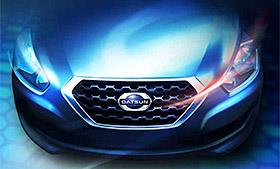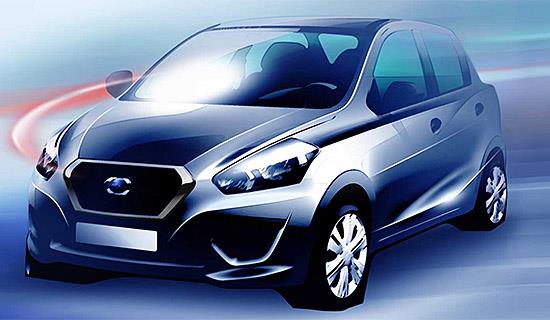Nissan's Datsun brand will be sold in developing countries starting in 2014.
 Nissan released sketches of its new Datsun subcompact hatchback, the first in a line of cheaper cars that are reviving the automaker's founding name from a 32-year slumber.
Nissan released sketches of its new Datsun subcompact hatchback, the first in a line of cheaper cars that are reviving the automaker's founding name from a 32-year slumber.The as-yet-unnamed model, which will be revealed in New Delhi on July 15, will appear only in developing markets, including India, Indonesia, Russia and South Africa when it goes on sale next year. Automakers in these countries have long offered stripped and sometimes older versions of popular global models in an effort to trim sticker prices. At worst, bottom-barrel automakers such as Chery have entered these markets with unsafe and poorly-built cars, as I found while visiting South Africa this year.
Nissan hopes to change that perception with Datsun, and while these cars won't be certified for Europe, Japan or the United States, they will give buyers "a rewarding brand experience with no compromise in terms of accessibility, reliability and durability," the company said in a statement. The Datsun name was replaced by Nissan in 1981.
Early estimates have pegged the new Datsun's price at the equivalent of $12,000, or roughly twice that of the Indian-built Tata Nano, currently the world's cheapest production car. Engines may go down to 800cc in some markets and warranties will be cut versus regular Nissan models. Pricing and all other details, including the name, will be revealed at the launch.

Nissan wants to grab eight percent of the global market by 2016 as part of a business plan to increase operating profits to that same amount. In Indonesia alone, Nissan has spent $395 million to expand a plant it expects will build 250,000 cars per year by 2014.
With the backing of Nissan, Datsun shouldn't have any trouble making a dent in these markets, where burgeoning middle class societies such as South Africa and India, long shut out from personal transportation, are more apt to cross-shop new brands and less likely to discriminate based on name alone. Plus, with Nissan and other automakers establishing new plants in India, Indonesia and China, the labor is cheaper and there are fewer regulations to clear.
So, it's a win-win for everyone -- unless you're expecting a small car to come with 10 airbags and all the latest safety equipment we take for granted here.
autos.msn.com
No comments:
Post a Comment